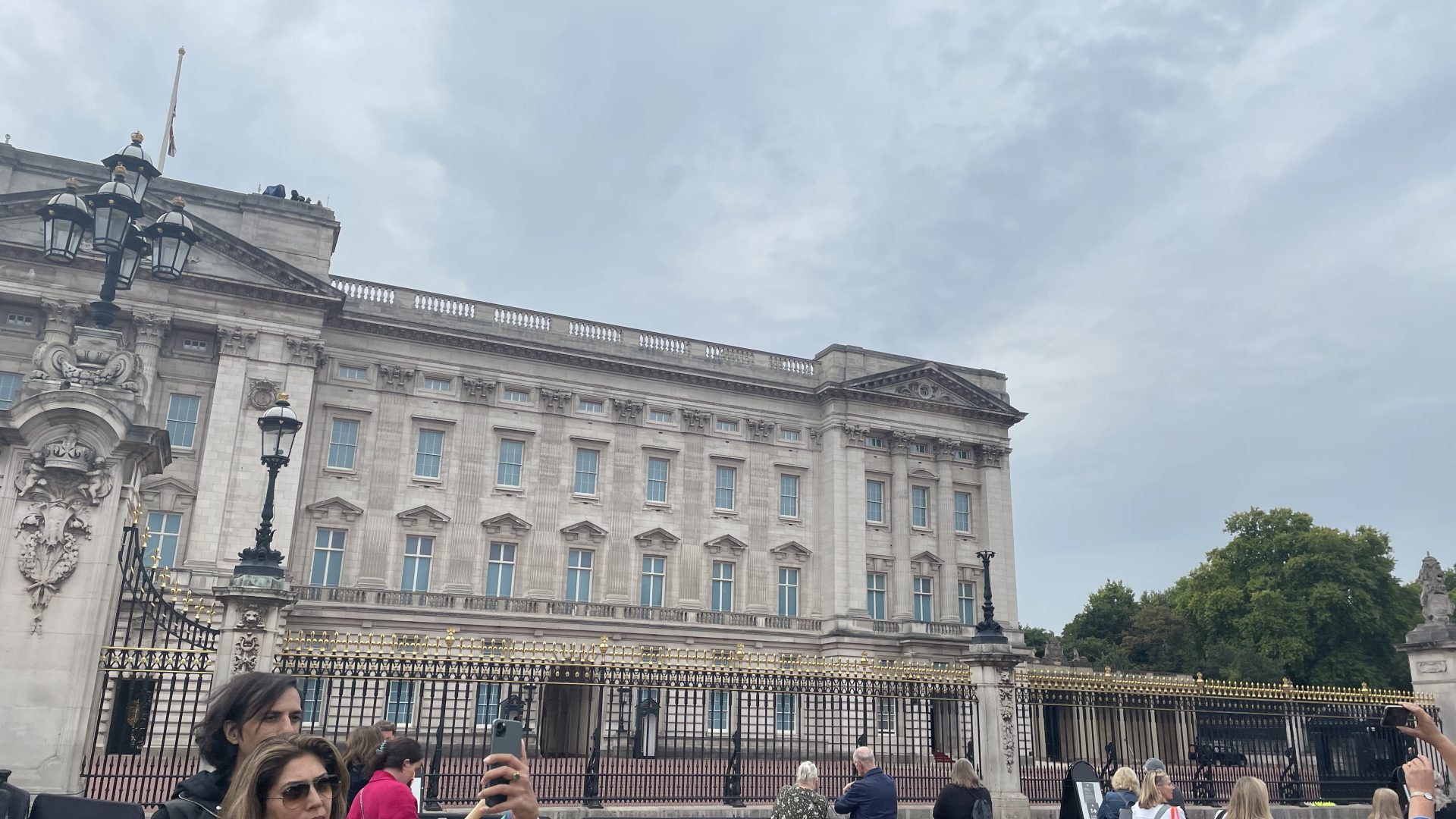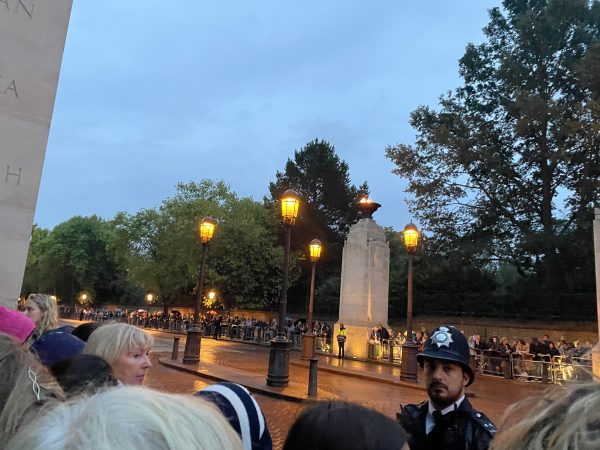
JDF blog: my experience of covering the Queen’s death – Noah Keate
"Being able to question people, observe and film footage for the history books was an occasion I won’t forget. For such a saddening news event, the opportunity to cover it was an honour and immensely rewarding."

Noah Keate
By JDF recipient Noah Keate, now a reporter at POLITICO.
Noah recounts what it was like to cover the Queen’s death in the first week of the fast-track course at News Associates London. News Associates won the Innovation of the Year award at the NCTJ’s Awards for Excellence last week for the coverage, which judges praised as “a highly innovative project, which turned breaking news into a fast turnaround learning environment”. The News Associates team put journalism first and supported students to create 142 articles in 11 days.
Four days into my NCTJ course at News Associates, the Queen passed away. A event which journalists spent decades preparing for, it was a shock. While a saddening day, the period provided a chance to put our new journalism skills into practice. Besides, the way to learn journalism is surely to do journalism.
News Associates has four in-house websites – collectively known as the Londoner sites – which cover the news, culture and sport of London. With much grieving, remembrance and commemoration occurring near Buckingham Palace, there were plenty of stories on offer. News Associates is based in Twickenham, with convenient transport connections making reaching central London no problem.
 Each trainee spent a mixture of time reporting from the office – writing live blogs, longer form contextual stories or working on social media – and on the ground. I went into central London twice. Firstly on Tuesday 13 September, the day the Queen’s funeral cortege returned to London. A fellow trainee and I walked through Green Park to the Mall and around Buckingham Palace. Our aim? To generate worthwhile vox-pops that demonstrated the range of emotions and responses to such a monumental occasion.
Each trainee spent a mixture of time reporting from the office – writing live blogs, longer form contextual stories or working on social media – and on the ground. I went into central London twice. Firstly on Tuesday 13 September, the day the Queen’s funeral cortege returned to London. A fellow trainee and I walked through Green Park to the Mall and around Buckingham Palace. Our aim? To generate worthwhile vox-pops that demonstrated the range of emotions and responses to such a monumental occasion.
Journalism is a profession that demands talking to people. In person, I’ve developed the ability not to find this a challenge. Say you are a journalist and people will be intrigued to speak to you. Over the phone, it’s been far harder. My hearing impairment means any low quality signal makes hearing ten times harder. Similarly, I often rely on lip-reading, something which is impossible when you cannot see the person’s face. It was a relief then to be conducting vox-pops in person.
 I really felt the immense responsibility that journalism entails. The shock of the Queen’s death was still raw for many, meaning an immense deal of sensitivity was required. The Londoner sites only wanted vox-pops from people who were willing to be on camera and give their full details. As such, we had to make this clear from the start when approaching mourners.
I really felt the immense responsibility that journalism entails. The shock of the Queen’s death was still raw for many, meaning an immense deal of sensitivity was required. The Londoner sites only wanted vox-pops from people who were willing to be on camera and give their full details. As such, we had to make this clear from the start when approaching mourners.
Thankfully, many individuals and groups of all ages were willing to discuss their reaction. Involving personal anecdotes, reflections on the historical period and international emotions, we captured some really worthwhile and meaningful statements. Some of the most memorable were the immediate responses to seeing the Queen’s funeral cortege pass Constitution Hill to enter Westminster.
I visited central London again to observe the queue to view the Queen lying-in-state. Starting at Southwark Park, it was incredible to witness the volume of people who wanted to pay their respects. My colleague and I walked 2.1 miles from Southwark Park to the Millennium Bridge, following the queue. Being able to question people, observe and film footage for the history books was an occasion I won’t forget. For such a saddening news event, the opportunity to cover it was an honour and immensely rewarding.

